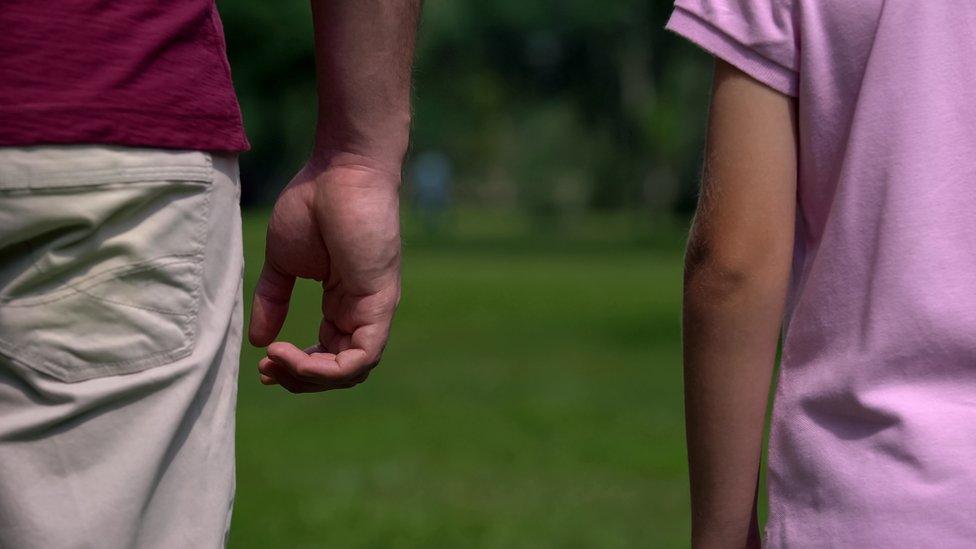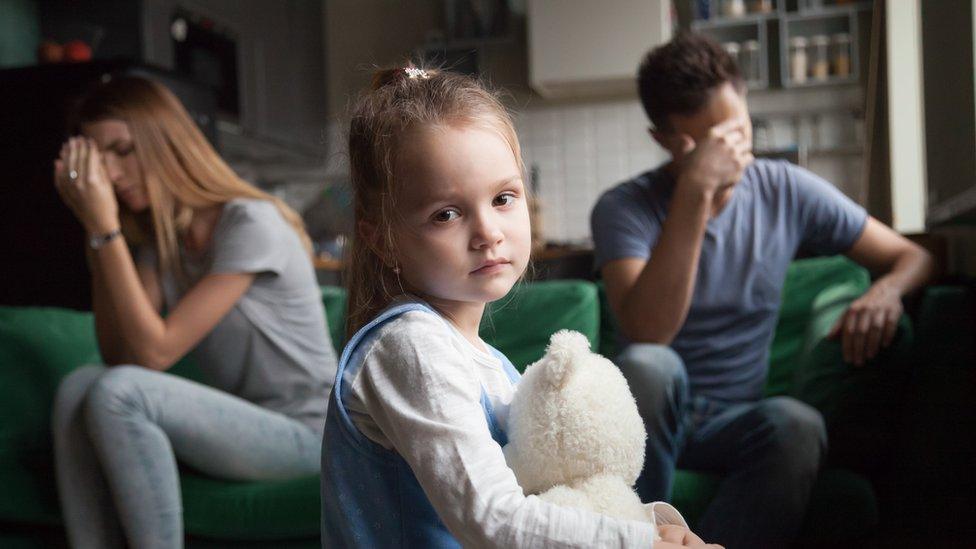Parenting classes 'could help reduce social costs'
- Published
- comments

Parenting classes should be made more available to help families deal with challenging behaviour, research says.
A King's College London study, external suggests young people displaying antisocial behaviour who do not feel cared about by their parents cost more socially than those who feel well supported.
The study says parenting classes could help families form stronger bonds.
It says early interventions can "improve child outcomes and reduce the financial burden on society".
The researchers assessed data from 174 young people, aged between nine and 17.
Of these, 85 had been rated by their schools as having moderate antisocial behavioural issues, while 89 had been referred by mental health services as having high levels of antisocial behaviour.
The young people (73% of whom were male) were interviewed for about an hour, separately from their parents, and asked how they felt about their parental relationships.
If they trusted their parent to provide emotional support, they were designated as having a secure attachment - but if they dismissed their parent as not there for them, they were designated as having an insecure attachment.
Using statistical software, the researchers examined data about the level of health, educational and social care services the families had accessed, as a result of their child's behaviour, in the previous year.
They took into account the parents' reports of how naughty the child was, as well as the child's own assessment of their behaviour and they also controlled for the child's level of antisocial behaviour recorded at the age of five or six.
The results showed those with secure attachments cost less than those with insecure attachments, whether or not they were in the group displaying moderate antisocial behaviour or high levels.
The study found young people securely attached to their mother cost £6,743, whereas those insecurely attached cost £10,119 - a £3,456 difference.
Differences were more striking for fathers, with securely attached youths costing £1,353, while insecurely attached youths cost £12,625 more at £13,978.
Parenting classes
The research concludes there is a case for "considerable investment" in parenting programmes.
"The results of this and other studies suggest that society would benefit from taking a public health approach to promoting good-quality care-giving to improve the wellbeing of children and young people and reduce their cost on society," it says.
"This could be achieved through supportive policies and widespread availability of good-quality parenting programmes that address attachment and involve fathers."

Prof Stephen Scott, from King's, said: "Knowing that your parent or caregiver will be there for you in times of emotional need is a core aspect of feeling loved.
"While it is well known that antisocial young people cost society more as they become adults, we have shown that insecure attachment adds a cost in its own right, independently of the costs of antisocial behaviour."
Prof Scott told BBC News that parenting classes, in setting out the need for "love and limits", would benefit all sections of society and could "reduce antisocial behaviour and improve school attainment by encouraging care-giving that leads to secure attachments".
"Parenting classes should be offered on a much larger scale, recognising that the quality of parent-child relationship is not just about individual psychological wellbeing but also has greater social and financial implications," he said.
The study is published in the Journal of Child Psychology and Psychiatry and was funded by the Healthcare Foundation.